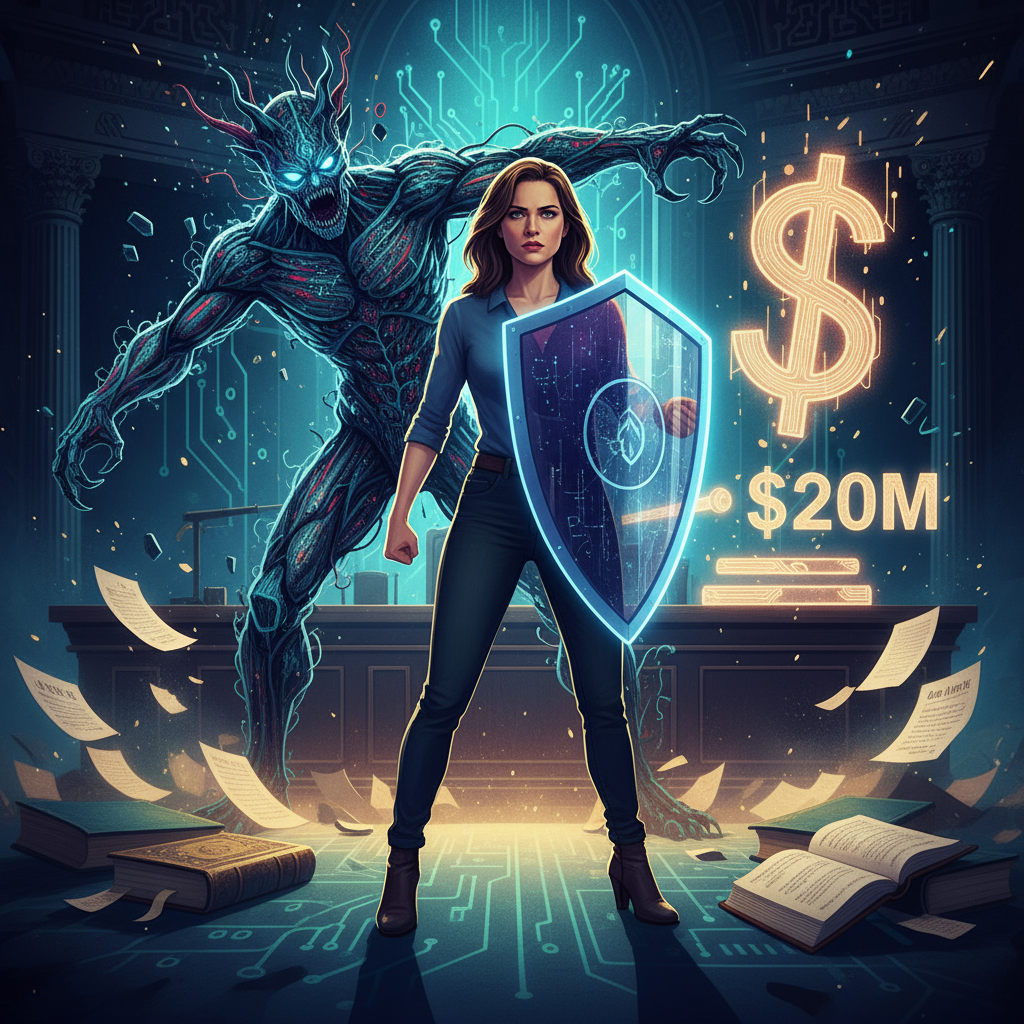The Pen, The AI, and The Historic Payday: How Andrea Bartz Stood Up for Authors
Imagine pouring your heart, soul, and countless hours into crafting a story, nurturing it from a flicker of an idea to a published book. Now, imagine discovering that your unique narrative, your carefully chosen words, have been silently consumed by an AI, used without your permission to power a chatbot that could then mimic or even generate content eerily similar to your own. This alarming scenario became a reality for acclaimed author Andrea Bartz, and her fight back didn’t just rattle the tech world – it reshaped the conversation around AI and copyright, culminating in what is now being hailed as the largest copyright settlement in history.
The Unsettling Discovery: When Creativity Becomes Training Data
For many authors, the advent of sophisticated AI models has been a double-edged sword. On one hand, the potential for new creative tools is undeniable. On the other, the opaque nature of how these AIs are trained has long been a source of anxiety. Andrea Bartz, known for her gripping psychological thrillers, experienced this anxiety firsthand. The exact moment of her discovery, as reported, was deeply disturbing. It wasn’t just a hypothetical concern; her intellectual property, the very essence of her livelihood, had been absorbed into an algorithmic maw.
This isn’t an isolated incident. Numerous authors and artists have voiced similar concerns, feeling that their work, often available publicly online, has been indiscriminately scraped to fuel the voracious data appetites of large language models (LLMs). The ethical implications are profound: does making a work publicly accessible automatically grant permission for its use in AI training? Most creators, and now, arguably the law, would vehemently disagree. The absence of explicit consent and fair compensation struck at the heart of creative ownership.
A Stand for Justice: The Lawsuit That Shook Silicon Valley
Bartz’s decision to sue wasn’t just about her own work; it was a defiant stand for the entire creative community. Facing off against powerful AI developers, she and her legal team embarked on a challenging, precedent-setting journey. The core of her argument revolved around copyright infringement – the unauthorized reproduction and distribution of her copyrighted material. The legal landscape surrounding AI training data was, at the time, nebulous, making her case particularly significant.
Her lawsuit brought to light the sheer scale of the issue. It wasn’t just a handful of books; it was potentially millions of copyrighted works that had been ingested without permission. This collective scale of infringement provided the leverage needed to push for a substantial resolution. The legal battle wasn’t just about punitive damages; it aimed to establish a clear precedent that AI companies cannot simply “borrow” intellectual property without consequence or compensation. The outcome would send a clear message: creativity has value, and that value must be respected, even in the digital age.
The Historic Settlement: A New Chapter for Copyright in the AI Era
The resolution of Andrea Bartz’s case marked a pivotal moment. While the exact figures and intricate details of the settlement remain confidential, its historical significance is undeniable. Being dubbed the “largest copyright settlement in history” underscores the magnitude of the financial recognition for the harm caused. This wasn’t merely a win for Andrea Bartz; it was a resounding victory for authors, artists, and creators across all disciplines.
This settlement establishes a new benchmark for how AI companies must engage with copyrighted material. It signals a shift from a “take first, ask later (or never)” approach to one that demands respect for intellectual property rights and fair compensation. It will likely spur AI developers to implement more rigorous protocols for data sourcing, potentially leading to licensing agreements, opt-out mechanisms, and a more transparent approach to their training data sets. For creators, it offers a glimmer of hope that their work will not be exploited in the AI revolution, but rather valued and protected.
Beyond the Payout: What This Means for the Future of AI and Creativity
Andrea Bartz’s tenacious fight has undoubtedly opened a new chapter in the ongoing dialogue between technology and creativity. Her case serves as a powerful reminder that while AI offers incredible potential, its development must proceed ethically and legally. This landmark settlement is likely to have far-reaching implications.
Firstly, it will undoubtedly encourage other creators to come forward and assert their rights. We can expect to see more lawsuits and, hopefully, more proactive measures from AI companies to avoid such litigation. Secondly, it could accelerate the development of industry standards and best practices for AI training data, pushing for greater transparency and accountability. Finally, and perhaps most importantly, it reaffirms the fundamental principle of copyright: that creators have exclusive rights to their original works, even in the face of rapidly advancing technological capabilities. Andrea Bartz didn’t just win a settlement; she helped solidify the foundation upon which future creative endeavors in the AI age will be built, ensuring that human ingenuity remains at the heart of innovation.
